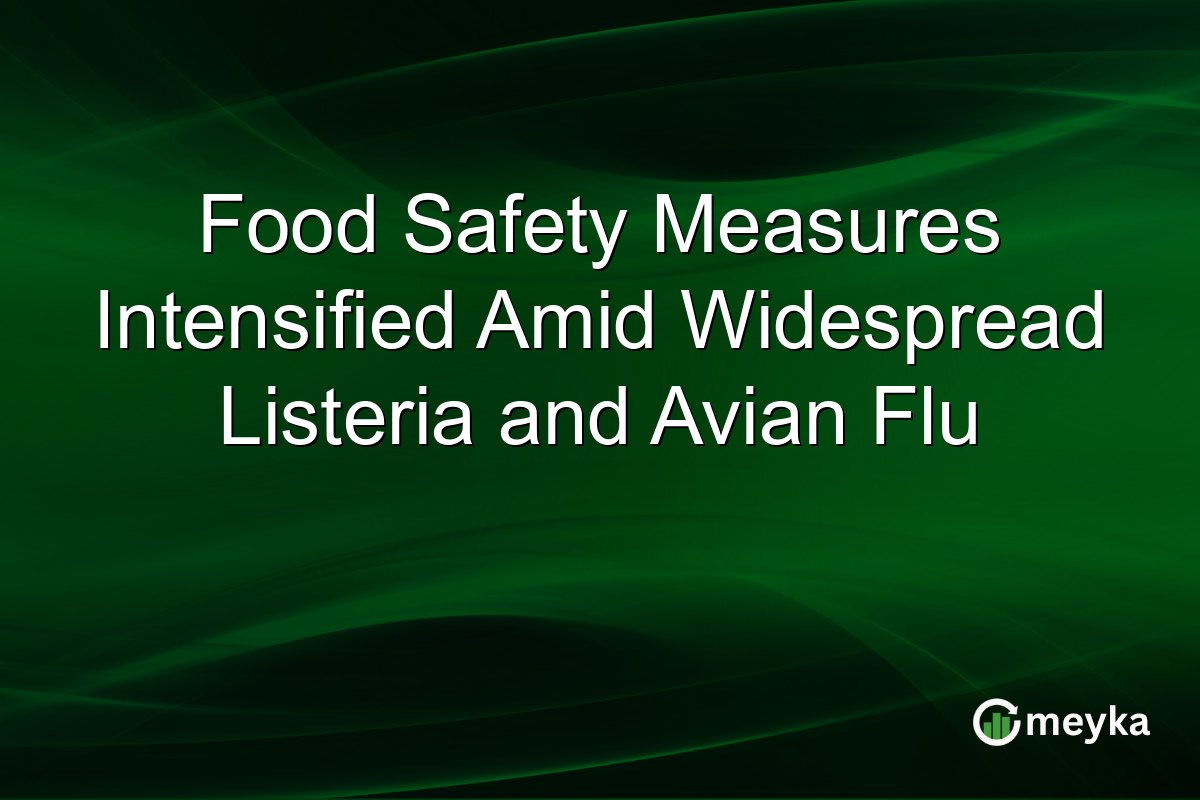Food Safety Measures Intensified Amid Widespread Listeria and Avian Flu
The recent surge in Listeria and avian flu cases has led to a significant overhaul of food safety measures in the United States. The FDA and CDC have intensified their efforts to curb these outbreaks, spotlighting the need for stricter food safety regulations. This food safety outbreak scenario impacts food supply chains, showcasing vulnerabilities in monitoring systems. As consumers and businesses alike grapple with these changes, understanding the implications of these measures becomes crucial.
Continue Reading on Meyka
This article is available in full on our main platform. Get access to complete analysis, stock insights, and more.
Read Full Article →





